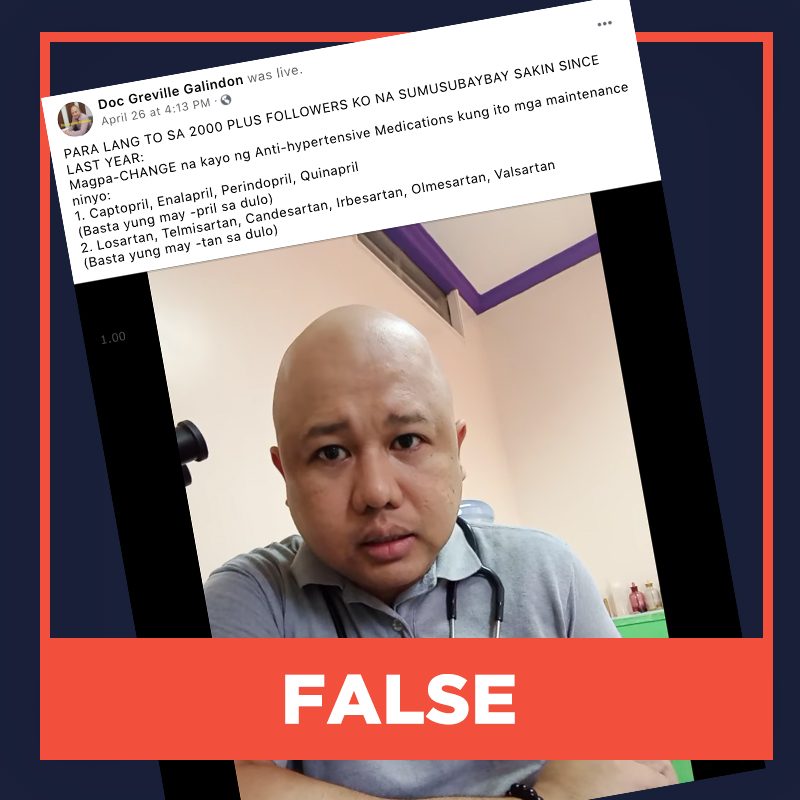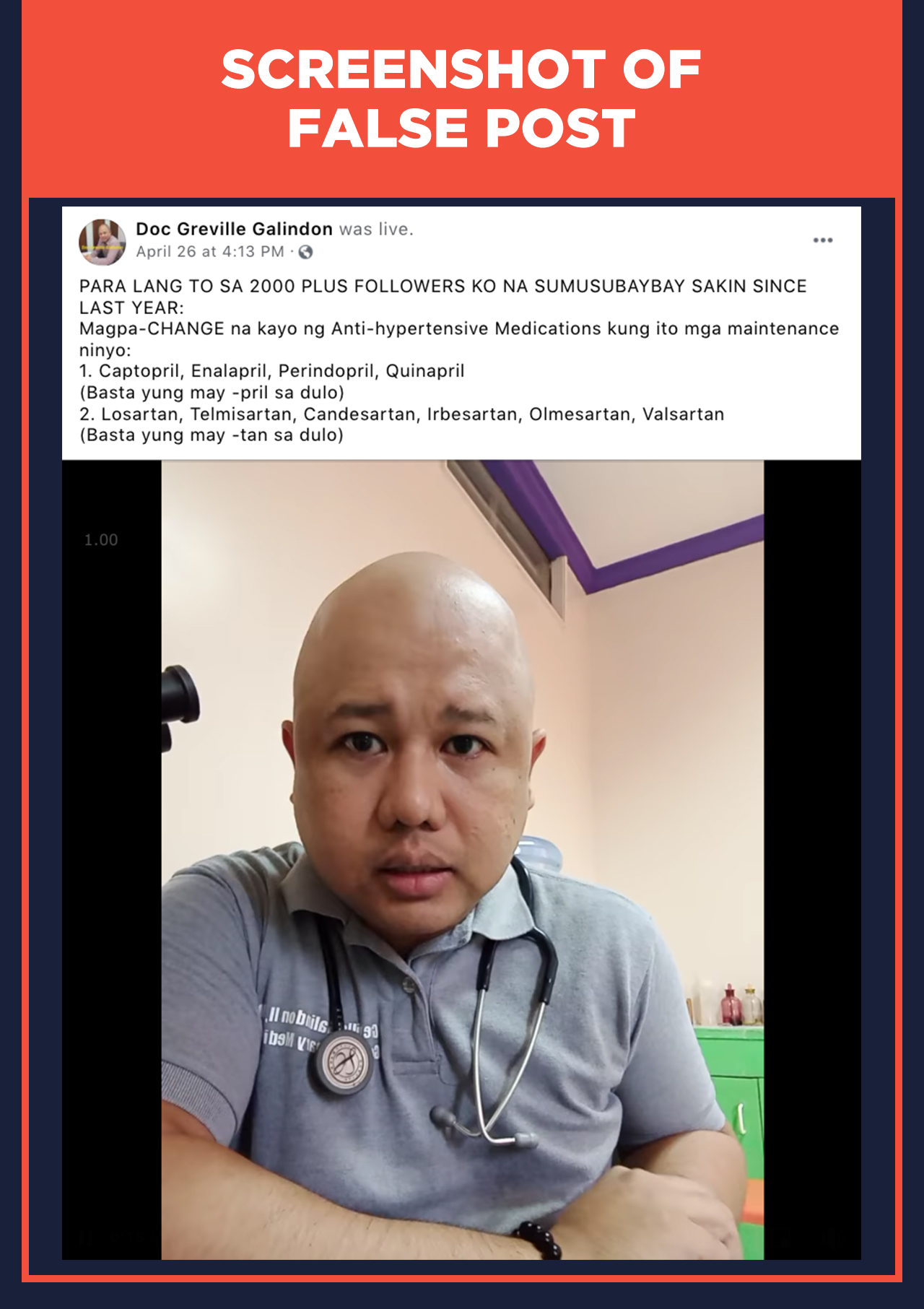SUMMARY
This is AI generated summarization, which may have errors. For context, always refer to the full article.

At a glance
- Claim: People who take anti-hypertensive medication, specifically angiotensin receptor blockers (ARBs) and angiotensin-converting enzyme (ACE) inhibitors, are more prone to COVID-19.
- Rating: FALSE
- The facts: Evidence reviewed by health institutions find no evidence of increased COVID-19 risk due to ARBs and ACE inhibitors.
- Why we fact-checked this: A video containing this claim has gained 11,000 reactions, 4,300 comments, and 18,000 shares as of writing.
Complete details
On Facebook, Dr. Greville Galindon told those who are taking anti-hypertensive medication, specifically those with names ending in “pril” and “tan,” to stop taking them and change their medication.
In a video posted on April 26, Galindon said: “‘Yung mga tao na nagtetake ng para sa high blood, na ang ending is ‘tan’ – for example, losartan, irbesartan, candesartan – itigil ‘nyo na ‘yun…. Pangalawang klase ng gamot, ‘yung mga nage-ending ng ‘pril’ – eto para din ‘to sa high blood: captopril, enalapril, basta sounds like pril – itigil ‘nyo na ‘yun.“
(Those who are taking medication for high blood that ends in “tan” – for example, losartan, irbesartan, candesartan – stop taking them…. Second kind of medication, those ending in “pril” – which is also for high blood: captopril, enalapril, as long as it sounds like “pril” – stop taking it.)
He added, “‘Yung mga tao na nagte-take niyan for more than one year are more prone to contract the virus.” (People who have been taking these for more than one year are more prone to contract the virus.)
He then advised those who are taking these kinds of medication to ask their doctor to change them.

The video has gained 11,000 reactions, 4,300 comments, and 18,000 shares as of writing.
This claim is false.
The medications mentioned by Galindon are types of angiotensin receptor blockers (ARBs) and angiotensin-converting enzyme (ACE) inhibitors, which lower high blood pressure.
The Department of Health debunked this claim on Facebook, saying, “Lahat ng uri ng gamot para sa High Blood na Angiotensin Receptor Blockers (ARB) (Losartan, Telmisartan, Irbesartan etc) at ACE-inhibitors (Captopril, Enalapril etc) ay ligtas inumin ng mga pasyenteng may altapresyon – may COVID-19 man o wala.”
(All kinds of medicine for high blood that are angiotensin receptor blockers (ARB) (Losartan, Telmisartan, Irbesartan etc) and ACE-inhibitors (Captopril, Enalapril, etc) are safe to consume for those with high blood pressure – with or without COVID-19.)
Further, the American Heart Association advises those with high blood pressure to continue taking all prescribed medications, including ACE inhibitors and ARBs.
It said: “There is no evidence that these medicines increase your risk of contracting COVID-19…. [High] blood pressure patients and diabetes patients should both keep in mind that your overall medical condition is much better if your blood pressure and diabetes are optimally controlled.”
Meanwhile, a scientific brief published by the World Health Organization in May 2020 concluded, “There is low-certainty evidence that patients on long-term therapy with ACE inhibitors or ARBs are not at higher risk of poor outcomes from COVID-19.”
Harvard Health Publishing also addressed this claim and said “observational studies in humans have found no increased risk of COVID-19 diagnosis, hospitalization, or death in people taking ACE inhibitors or ARBs.”
It added that abruptly stopping ACE inhibitor or ARB medication could cause one’s blood pressure to spike or worsen one’s underlying health condition, which would increase the risk of complications from the infection. – Loreben Tuquero/Rappler.com
Keep us aware of suspicious Facebook pages, groups, accounts, websites, articles, or photos in your network by contacting us at factcheck@rappler.com. Let us battle disinformation one Fact Check at a time.
Add a comment
How does this make you feel?
There are no comments yet. Add your comment to start the conversation.